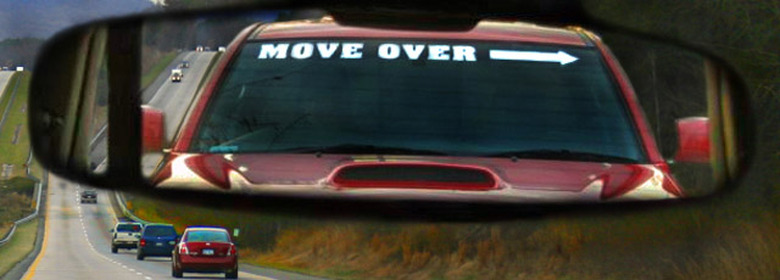Slow Left Lane Drivers, It's Time To Speed Up Or Pay The Dawdle Tax
A study of road rage conducted by GfK on behalf of Expedia revealed that left lane drivers who are driving below the speed limit are the third top reason to get other drivers' blood boiling, right after texting while driving and tailgating. It's not surprising that more U.S. states are coming up with legislation to fine left lane hogs.
DON'T MISS: The real story of a bank robber who willingly went to prison even though police never caught him
A report on NBC News says that 40 states now have some form of penalty in place for drivers who slow down traffic on the speed lane.
Starting with July 1st, slow left lane drivers in Indiana will be fined as much as $500 for refusing to move out of the left lane in high traffic, though most fines will be for a lower amount.
In Georgia, fines go up to $1,000, while New Jersey increased its left lane slow driving fines by 50%, to $300, two years ago.
Driving in the fast lane at speeds of at least 10mph below the limit will get drivers in Florida not only a fine, but also three points on their license.
Oregon is also considering a similar dawdler bill for later this year, with fines going up to $160 for left lane hogs. "This is totally about traffic safety," Portland Democrat Sen. Ginny Burdick said about the bill. "This is a problem that's just getting worse out there," she told the Oregonian.
Critics of these bills say that these laws will encourage speedsters to drive even faster, and thus endanger the safety of others. However, studies have shown that it's actually safer passing other vehicles on the left, or the driver's side, rather than merging with traffic on the right to pass cars.
Thus, slow left lane drivers who refuse to get back to the right while driving below speed limits might force faster drivers to pass them and others on the right, leading to more serious accidents.
